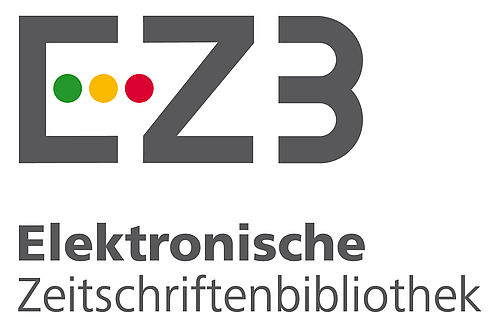Abstract
References
- Al-Dabbas, M.M., 2017. Antioxdant activity of different extracts from the aerial part of Moringa peregrina (Forssk.) Fiori, from Jordan. Pakistan Journal of Pharmaceutical Sciences 30, 2151–2157.Altundag, E., Ozturk, M., 2011. Ethnomedicinal studies on the plant resources of east Anatolia, Turkey. Procedia Social and Behavioral Sciences 19, 756–777.Aykurt, C., 2010. Taxonomical studies on genus Convolvulus L. (Convolvulaceae) in Turkey. PhD thesis, Univ. of Akdeniz.Aykurt, C., Sümbül, H., 2014. Taxonomic revision of the genus Convolvulus L. (Convolvulaceae) in Turkey. Biological Diversity and Conservation 7, 10–37.Azman, N.A., Gallego, M.G., Juliá, L., Fajari, L., Almajano, M., 2015. The Effect of Convolvulus arvensis Dried Extract as a Potential Antioxidant in Food Models. Antioxidants 4, 170–184.Balakrishnan, N., Panda, A.B., Raj, N.R., Shrivastava, A., Prathani, R.B., 2009. The evaluation of nitric oxide scavenging activity of Acalypha indica Linn Root. Asian Journal Research Chemistry 2, 148–150.Baytop, T., 1999. Türkiye’de Bitkiler ile Tedavi. Nobel Tıp Kitabevleri, İstanbul.Benmerache, A., Berrehal, D., Kabouche, A., Semra, Z., Thomas, O., Touzani, R., Kabouche, Z., 2013. Antioxidant, antibacterial activities and flavonoids of Convolvulus fatmensis G. Kunze. Der Pharmacia Lettre 5, 371–375.Berk, S., Tepe, B., Arslan, S., Sarikurkcu, C., 2011. Screening of the antioxidant, antimicrobial and DNA damage protection potentials of the aqueous extract of Asplenium ceterach DC. African Journal of Biotechnology 10, 8902–8908.Du, G.R., Li, M.J., Ma, F.W., Liang, D., 2009. Antioxidant capacity and the relationship with polyphenol and Vitamin C in Actinidia fruits. Food Chemistry 113, 557–562.Elzaawely, A.A., Tawata, S., 2012. Antioxidant Activity of Phenolic Rich Fraction Obtainedfrom Convolvulus arvensis L. Leaves Grown in Egypt. Asian Journal of Crop Science 4, 32–40.Fabricant, D.S., Farnsworth, N.R., 2001. The value of plants used in traditionalmedicine for drug discovery. Environmental Health Perspectives 109, 69–75.Finkel, T., Holbrook, N.J., 2000. Oxidants, oxidative stress and the biology of ageing. Nature 408, 239–247.Gupta, G.L., Fernandes, J., 2019. Protective eff ect of Convolvulus pluricaulis against neuroinflammation associated depressive behavior induced by chronic unpredictable mild stress in rat. Biomedicine and Pharmacotherapy 109, 1698–1708.Hassan, S.B., Gullbo, J., Hu, K., Berenjian, S., Morein, B., Nygren, P., 2013. The Nanoparticulate Quillaja Saponin BBE is selectively active towards renal cell carcinoma. Anticancer Research 33(1), 143–51.Hiai, S., Oura, H., Nakajima, T., 1976. Color reaction of some sapogenins and saponins with vanillin and sulfuric acid. Planta Medica 29, 116–122.Khorasani Esmaeili, A., Mat Taha, R., Mohajer, S., Banisalam, B., 2015. Antioxidant Activity and Total Phenolic and Flavonoid Content of Various Solvent Extracts from In Vivo and In Vitro Grown Trifolium pratense L. (Red Clover). BioMed Research International, 643285. doi:10.1155/2015/643285.Menemen, Y., Williams, C.A., Jury, S.L., 2002. Flavonoid patterns in Convolvulus L. (Convolvulaceae) species from Morocco. Pakistan Journal of Botany 34, 291–295.Moreno, M.I., Isla, M.I., Sampietro, A.R., Vattuone, M.A., 2000. Comparison of the free radical-scavenging activity of propolis from several regions of Argentina. Journal of Ethnopharmacology 71, 109–114.Ozay, C., Mammadov. R., Tasdelen. G., Karagur, E.R., Akca, H., 2015. Potential antioxidant, antiproliferative and hepatoprotective effects of Crataegus meyeri. Journal of Food Biochemistry 39, 548–553.Rachitha, P., Krupashree, K., Jayashree, G.V., Kandikattu, H.K., Amruta, N., Gopalan, N., Rao, M.K., Khanum, F., 2018. Chemical composition, antioxidant potential, macromolecule damage and neuroprotective activity of Convolvulus pluricaulis. Journal of Traditional and Complementary Medicine 8, 483–496.Re, R., Pellegrini, N., Proteggente, A., Pannala, A., Yang, M., Rice-Evans, C., 1999. Antioxidant activity applying an improved ABTS radical cation decolorization assay. Free Radical Biology and Medicine 26, 1231–1237. Sadeghi-Aliabadi, H., Ghasemi, N., Kohi, M., 2008. Cytotoxic effect of Convolvulus arvensis extracts on human cancerous cell line. Research in Pharmaceutical Sciences 3, 31–34.Saleem, M., Qadir, M.I., Ahmad, B., Saleem, U., Naseer, F., SchiniKerth, V., Ahmad, M., Hussain, K., 2014. Cytotoxic effect of ethanol extract of Convolvulus arvensis L (Convolvulaceae) on lymphoblastic leukemia Jurkat cells. Tropical Journal of Pharmaceutical Research 13, 705–709.Slinkard, K., Singleton, V.L., 1977. Total phenol analyses: automation and comparison with manual methods. American Journal of Enology and Viticulture 28, 49–55. Thakral, J., Borar, S., Kalia, A.N., 2010. Antioxidant potential fractionation from methanol extract of aerial parts of Convolvulus arvensis Linn. (Convolvulaceae). International Journal of Pharmaceutical Sciences and Drug Research 2, 219–223.Todd, F.G., Stermitz. F.R., Schultheis, P., Knight, A.P., Traub-Dargatz, J., 1995. Tropane alkaloids and toxicity of Convolvulus arvensis. Phytochemistry 39, 301–303.Zengin, G., Nithiyanantham, S., Locatelli, M., Ceylan, R., Uysal, S., Aktumsek, A., Selvi, P.K., Maskovic, P., 2015. Screening of in vitro antioxidant and enzyme inhibitory activities of different extracts from two uninvestigated wild plants: Centranthus longiflorus subsp. longiflorus and Cerinthe minor subsp. auriculata. European Journal of Integrative Medicine 8, 286–292.Zengin, G., Sarikurkcu, C., Aktumsek, A., Ceylan, R., Ceylan, O.A., 2014. Comprehensive study on phytochemical characterization of Haplophyllum myrtifolium Boiss. endemic to Turkey and its inhibitory potential against key enzymes involved in Alzheimer, skin diseases and type II diabetes. Industrial Crops and Products 53, 244–251.
Antioxidant Activity, Total Phenolic, Flavonoid and Saponin Contents of Different Solvent Extracts of Convolvulus phrygius Bornm
Abstract
It is known that some members of the
genus Convolvulus L. are commonly used in Turkish folk
medicine. These species are powerful in curing the toothache and joint pains. This
study was focused on the determination of the total phenolic, flavonoid and
saponin contents of the different solvent (methanol, acetone and petroleum
benzine) extracts of C. phrygius as well as its
antioxidant activity. Folin-Ciocalteu
assay, aluminium colorimetric and vanillin-sulphuric acid method were used to
detect total phenolic, flavonoid and saponin contents in the extracts,
respectively. The
antioxidant activities were determined by using ABTS, NO, FRAP, phosphomolybdenum, and
metal chelating methods. The methanol extract of C. phrygius
demonstrated highest antioxidant and total phenolic, flavonoid and saponin
content. Our results showed that C. phrygius could
be accepted as a novel and alternative natural antioxidant source. Further
studies should be carried out on the identification of responsible active
components.
References
- Al-Dabbas, M.M., 2017. Antioxdant activity of different extracts from the aerial part of Moringa peregrina (Forssk.) Fiori, from Jordan. Pakistan Journal of Pharmaceutical Sciences 30, 2151–2157.Altundag, E., Ozturk, M., 2011. Ethnomedicinal studies on the plant resources of east Anatolia, Turkey. Procedia Social and Behavioral Sciences 19, 756–777.Aykurt, C., 2010. Taxonomical studies on genus Convolvulus L. (Convolvulaceae) in Turkey. PhD thesis, Univ. of Akdeniz.Aykurt, C., Sümbül, H., 2014. Taxonomic revision of the genus Convolvulus L. (Convolvulaceae) in Turkey. Biological Diversity and Conservation 7, 10–37.Azman, N.A., Gallego, M.G., Juliá, L., Fajari, L., Almajano, M., 2015. The Effect of Convolvulus arvensis Dried Extract as a Potential Antioxidant in Food Models. Antioxidants 4, 170–184.Balakrishnan, N., Panda, A.B., Raj, N.R., Shrivastava, A., Prathani, R.B., 2009. The evaluation of nitric oxide scavenging activity of Acalypha indica Linn Root. Asian Journal Research Chemistry 2, 148–150.Baytop, T., 1999. Türkiye’de Bitkiler ile Tedavi. Nobel Tıp Kitabevleri, İstanbul.Benmerache, A., Berrehal, D., Kabouche, A., Semra, Z., Thomas, O., Touzani, R., Kabouche, Z., 2013. Antioxidant, antibacterial activities and flavonoids of Convolvulus fatmensis G. Kunze. Der Pharmacia Lettre 5, 371–375.Berk, S., Tepe, B., Arslan, S., Sarikurkcu, C., 2011. Screening of the antioxidant, antimicrobial and DNA damage protection potentials of the aqueous extract of Asplenium ceterach DC. African Journal of Biotechnology 10, 8902–8908.Du, G.R., Li, M.J., Ma, F.W., Liang, D., 2009. Antioxidant capacity and the relationship with polyphenol and Vitamin C in Actinidia fruits. Food Chemistry 113, 557–562.Elzaawely, A.A., Tawata, S., 2012. Antioxidant Activity of Phenolic Rich Fraction Obtainedfrom Convolvulus arvensis L. Leaves Grown in Egypt. Asian Journal of Crop Science 4, 32–40.Fabricant, D.S., Farnsworth, N.R., 2001. The value of plants used in traditionalmedicine for drug discovery. Environmental Health Perspectives 109, 69–75.Finkel, T., Holbrook, N.J., 2000. Oxidants, oxidative stress and the biology of ageing. Nature 408, 239–247.Gupta, G.L., Fernandes, J., 2019. Protective eff ect of Convolvulus pluricaulis against neuroinflammation associated depressive behavior induced by chronic unpredictable mild stress in rat. Biomedicine and Pharmacotherapy 109, 1698–1708.Hassan, S.B., Gullbo, J., Hu, K., Berenjian, S., Morein, B., Nygren, P., 2013. The Nanoparticulate Quillaja Saponin BBE is selectively active towards renal cell carcinoma. Anticancer Research 33(1), 143–51.Hiai, S., Oura, H., Nakajima, T., 1976. Color reaction of some sapogenins and saponins with vanillin and sulfuric acid. Planta Medica 29, 116–122.Khorasani Esmaeili, A., Mat Taha, R., Mohajer, S., Banisalam, B., 2015. Antioxidant Activity and Total Phenolic and Flavonoid Content of Various Solvent Extracts from In Vivo and In Vitro Grown Trifolium pratense L. (Red Clover). BioMed Research International, 643285. doi:10.1155/2015/643285.Menemen, Y., Williams, C.A., Jury, S.L., 2002. Flavonoid patterns in Convolvulus L. (Convolvulaceae) species from Morocco. Pakistan Journal of Botany 34, 291–295.Moreno, M.I., Isla, M.I., Sampietro, A.R., Vattuone, M.A., 2000. Comparison of the free radical-scavenging activity of propolis from several regions of Argentina. Journal of Ethnopharmacology 71, 109–114.Ozay, C., Mammadov. R., Tasdelen. G., Karagur, E.R., Akca, H., 2015. Potential antioxidant, antiproliferative and hepatoprotective effects of Crataegus meyeri. Journal of Food Biochemistry 39, 548–553.Rachitha, P., Krupashree, K., Jayashree, G.V., Kandikattu, H.K., Amruta, N., Gopalan, N., Rao, M.K., Khanum, F., 2018. Chemical composition, antioxidant potential, macromolecule damage and neuroprotective activity of Convolvulus pluricaulis. Journal of Traditional and Complementary Medicine 8, 483–496.Re, R., Pellegrini, N., Proteggente, A., Pannala, A., Yang, M., Rice-Evans, C., 1999. Antioxidant activity applying an improved ABTS radical cation decolorization assay. Free Radical Biology and Medicine 26, 1231–1237. Sadeghi-Aliabadi, H., Ghasemi, N., Kohi, M., 2008. Cytotoxic effect of Convolvulus arvensis extracts on human cancerous cell line. Research in Pharmaceutical Sciences 3, 31–34.Saleem, M., Qadir, M.I., Ahmad, B., Saleem, U., Naseer, F., SchiniKerth, V., Ahmad, M., Hussain, K., 2014. Cytotoxic effect of ethanol extract of Convolvulus arvensis L (Convolvulaceae) on lymphoblastic leukemia Jurkat cells. Tropical Journal of Pharmaceutical Research 13, 705–709.Slinkard, K., Singleton, V.L., 1977. Total phenol analyses: automation and comparison with manual methods. American Journal of Enology and Viticulture 28, 49–55. Thakral, J., Borar, S., Kalia, A.N., 2010. Antioxidant potential fractionation from methanol extract of aerial parts of Convolvulus arvensis Linn. (Convolvulaceae). International Journal of Pharmaceutical Sciences and Drug Research 2, 219–223.Todd, F.G., Stermitz. F.R., Schultheis, P., Knight, A.P., Traub-Dargatz, J., 1995. Tropane alkaloids and toxicity of Convolvulus arvensis. Phytochemistry 39, 301–303.Zengin, G., Nithiyanantham, S., Locatelli, M., Ceylan, R., Uysal, S., Aktumsek, A., Selvi, P.K., Maskovic, P., 2015. Screening of in vitro antioxidant and enzyme inhibitory activities of different extracts from two uninvestigated wild plants: Centranthus longiflorus subsp. longiflorus and Cerinthe minor subsp. auriculata. European Journal of Integrative Medicine 8, 286–292.Zengin, G., Sarikurkcu, C., Aktumsek, A., Ceylan, R., Ceylan, O.A., 2014. Comprehensive study on phytochemical characterization of Haplophyllum myrtifolium Boiss. endemic to Turkey and its inhibitory potential against key enzymes involved in Alzheimer, skin diseases and type II diabetes. Industrial Crops and Products 53, 244–251.
Details
| Primary Language | English |
|---|---|
| Journal Section | Research Article |
| Authors | |
| Publication Date | July 29, 2019 |
| Published in Issue | Year 2019 Volume: 2 Issue: 1 |
-------------------------------------------------------------------------------------------------------------------------------













-------------------------------------------------------------------------------------------------------------------------
 CUPMAP Journal is licensed under a Creative Commons Attribution-NonCommercial-NoDerivatives 4.0 International License.
CUPMAP Journal is licensed under a Creative Commons Attribution-NonCommercial-NoDerivatives 4.0 International License.
-----------------------------------------------------------------------------------------------------------------------------------------
This is an open access journal which means that all content is freely available without charge to the user or his/her institution. Users are allowed to read, download, copy, distribute, print, search, or link to the full texts of the articles, or use them for any other lawful purpose, without asking prior permission from the publisher or the author. This is in accordance with the BOAI definition of open access.
